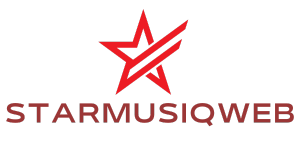Essential Resources for Owner-Operator Fleets: A Complete Guide

Running a fleet as an owner-operator is demanding. You’re the driver, dispatcher, accountant, and maintenance manager. Every job is stressful, and every mistake costs you money. That’s why the right systems, documents, and services aren’t a luxury, they’re a matter of life and death. This book deals with the required systems, papers, and services to be lean, stay compliant, and protect revenue. Whatever the size of your operation, one truck or ten, these essentials keep you advancing.
Financial Management and Recordkeeping
Get ahead of taxes and cash flow. Simple accounting packages or spreadsheets can monitor income, expenses, and mileage. Among the most critical resources for owner-operator fleets are digital tools that organize receipts and bills. IRS audits are real, and sloppy books will cost you. Know your quarterly tax dates. Set aside money weekly. Skip this, and your profits disappear in penalties.
DOT Compliance and Safety Tools
The Department of Transportation (DOT) expects complete compliance. That includes electronic logging devices (ELDs), up-to-date inspection records, and driver qualification files. Keep your medical cards valid. Use compliance checklists before each haul. If you miss a requirement, expect fines or downtime. A compliance calendar and digital log tracker are essential for staying legal.
Load Boards and Freight-Matching Tools
Owner-operators live and die by freight access. Use load boards to find hauls quickly and filter by route, weight, and rate. Prioritize boards that verify brokers and include credit scores. Double-brokering is common, and chasing unpaid invoices eats your time. Set alerts for your preferred lanes and avoid empty miles wherever possible.
Maintenance Schedules and Diagnostic Tools
Downtime is profit loss. Construct a preventative maintenance schedule: monitor oil change, tire rotation, and brake checks. Read codes with engine diagnosis tools and get the repairs planned out. Do not wait till the check engine light comes. Log all maintenance tasks. If you sell the truck later, this record adds value and proves upkeep.
Route Optimization and Fuel Planning
Plan efficient routes, not just fast ones. Use mapping tools that account for truck restrictions, weight limits, and fuel prices. Fuel costs are your largest expense after insurance. Plan where to refuel and how much to purchase per stop. Avoid backtracking or idling. Every detour burns revenue. Know your MPG and plan accordingly.
Compare gas stations between state boundaries There are minor tax differences that can greatly affect your cost per gallon and you need to account for that by having all fuel receipts tracked so you meet your IFTA needs.
Insurance and Risk Mitigation
Don’t settle for the bare minimum. Based on situations, you need cargo insurance, physical damage, and non-trucking liability. Review policies annually. Understand deductibles. Carry an insurance certificate along. Keep a checklist for claims at hand so you’re not in a state of frenzy after an accident. Underinsurance ruins more careers than bad luck ever did.
Legal and Permit Documents
Stay updated on state-specific permits, IRP registrations, and IFTA filings. Missing one form leads to roadside delays or fines. Keep a printed and digital copy of everything. Check renewal dates monthly. Your authority status, USDOT number, and operating credentials should be instantly accessible. If a DOT officer asks, you’d better have it.
Owner-operators succeed with systems, not luck. Track finances, follow regulations, maintain the truck, and plan smarter routes. Keep your documents clean and your records tighter. That’s how you stay profitable. Build a contact list of local repair shops, tow services, and permit offices along your common routes. One call during a breakdown can save hours or days.





